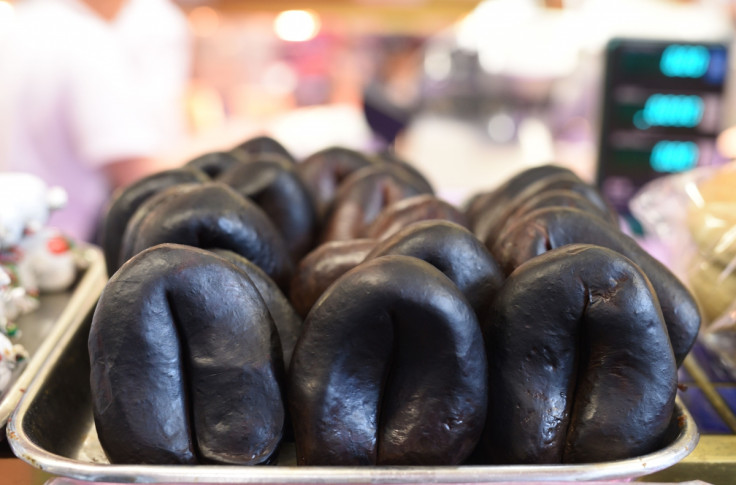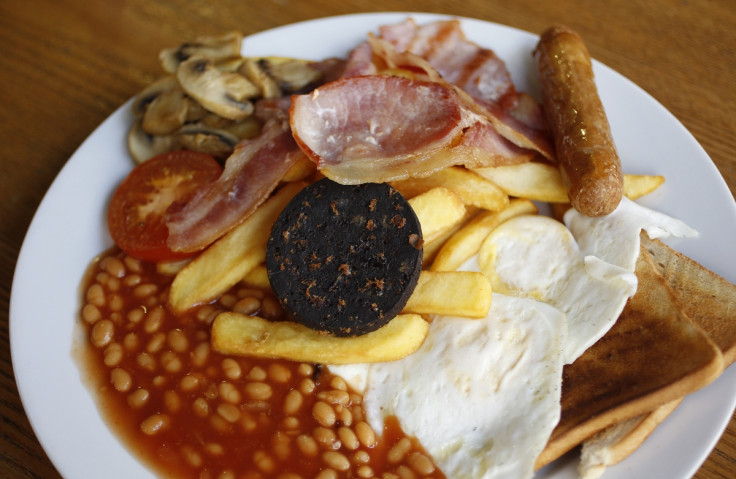Black pudding: Is it really a superfood?

Black pudding, in case you haven't heard, has been named a superfood. British breakfast fans rejoiced. Marketers patted each other on the back. Consumers ran to their nearest butcher to get the health benefits of the blood sausage. Everyone neglected to mention that in reality, it's not really that healthy.
Superfood is a dubious term. It doesn't really have a meaning past 'this is healthy' and is therefore a label pretty easy to exploit. Back in 2007, the EU banned the use of the term on packaging without a proven claim – when the law came through a spokesperson for the Food Standards Agency told the BBC: "the regulation requires they are backed up by a relevant and authorised health claim. This way the consumer knows why this food is healthy." The lack of superfood on packaging in supermarkets should indicate how many can back up the claim.
This though doesn't stop spurious health claims popping up. Foods are often said to be high in a certain vitamin without much explanation of what that means or whether it really puts it on a level above other foods – a 'super' level, even.
Black pudding, we've been told, is high in iron and zinc, as well as a host of other vitamins and minerals. So we asked an expert.
It's not that easy...
British Dietetic Association spokesperson and freelance dietician at Honest Nutrition, Anna Daniels spoke to IBTimes UK about whether the new label being given to black pudding really amounted to anything.
But it's not that easy, there are always going to be different kinds of black pudding: "the quality varies from manufacturer to manufacturer, some manufacturers will use a lot of pigs blood – which means it will be high in iron." But red meat, the bloodier the better, is always high in iron – "offal, which most people don't really eat – heart and liver – are equally high."
It doesn't take much digging to see the other side of black pudding, the less healthy side that hasn't been mentioned. "Calorie-wise it's 297 calories per 100g – that is quite high – and it's really high in fat, 21.5g of fat per 100g and of that about 8.5g is saturated." These figures came from food charts that sampled eight products from six different brands, Daniels says that that means some brands could even be worse – if a brand used more pig's fat then the saturated fat levels would be even higher.
One article suggested that black pudding was a health food because people aren't getting enough iron in their diet. Well, not everyone, says Daniels: "actually, this only really goes for certain categories of people: women who are pregnant need to eat more iron; girls going through puberty – certain groups need more iron but... lots of our breakfast cereals are fortified with iron now."

"I don't think eating black pudding is the answer."
Labelling foods as 'super' or 'healthy' might seem like a harmless marketing ploy but it can often really skew public perception and knowledge about which foods to choose. In October 2015, the World Health Organisation added processed meats to its list of carcinogenic products – processed meats includes black pudding.
"People say blueberries are superfoods, pomegranate comes up as a superfoods, no one's going to have any negative side-effects from eating those, they're plant-based, but something like black pudding – if people start to think actually, I'm going to start eating black pudding, then this one could have a detrimental effect. Some of the stories aren't bad but potentially the wrong person might take this and run with it and run the risk of actually damaging themselves."
"I don't think eating black pudding is the answer."
Health Benefits?
Is it all bad for the blood sausage? "Black pudding could claim to be high in iron, if it was a quality sausage but it would also need to claim that it was high in saturated fat so that would almost cancel out the benefits," says Daniels.
But what about all that healthy oatmeal? "Oatmeal contains beta-glucan which is proven to lower cholesterol but again, the amount of saturated fat in this, it wouldn't be something beneficial."

What is a superfood?
Terms adopted by marketing campaigns quickly lose any meaning – the speedy death of 'netflix and chill' in 2015 is testament to that – so have we finally reached peak 'superfood'? As Daniel's told us: "it's mainly a marketing term now."
It's worst when you think about the damage it could cause, claims like this "go against other guidance that says we should be avoiding processed meats," says Daniels.
Health and the diet that affects that health are important topics that people are rightfully concerned about. In the age of ever changing food fads, when even fairly good scientific studies are being taken entirely out of context, it's becoming more and more important to check where your facts are coming from and what a claim actually means. It's maybe not surprising that a Waitrose report last year suggested that 80% of consumers don't trust health food experts.
That doesn't mean black pudding is a terrible thing you should stay away from – as ever, the truth in diet is moderation and balance, no single superfood is going to save you. So enjoy a little black pudding with your fry-up, but maybe don't make it a regular thing.
© Copyright IBTimes 2025. All rights reserved.






















